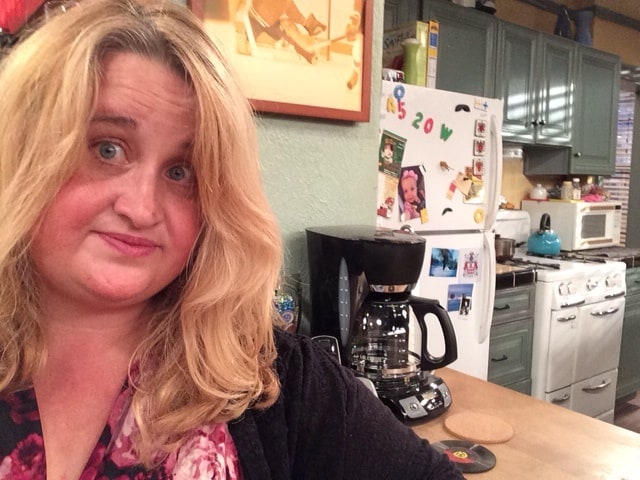
Managing your money and keeping track of finances can be one of the tougher parts of being an adult.
Using cashless payments and credit cards can make it easy for spending to easily spiral out of control and when going over your expenses, you may be wondering where all your money is going every month.
A financial journal can help you track these costs, as well as your income and better analyze every aspect of your spending.
Here are some of the best budget planners for beginners no matter your experience or income.
Contents
- Online Budget Planners
- 1. EveryDollar
- 2. BudgetSimple
- 3. BudgetTracker
- 4. YNAB (You Need A Budget)
- 5. Goodbudget
- 6. PocketGuard
- Journal Budget Planners
- 7. The Erin Condren Budget Planner
- 8. rnairni All-in-One Cash Envelopes Handbag Wallet
- 9. The Financial Peace Planner
- 10. Clever Fox Budget Planner
- 11. The Best Budgeting Workbook
- Free Printable Budget Planners
- 12. Pinterest
- 13. Money Blogs
- What to Look for in a Budget Planner
- Method
- User Friendliness
- Flexibility
- Customization
- Design
- Reviews
- Undated
- Easy Ways to Cut Expenses from Your Budget
- Remove unnecessary expenses
- Cut unnecessary services
- Renegotiate rates
- Use smarter spending
Online Budget Planners
When it comes to logging and keeping on top of things, I’m personally a digital girl.
I like things that I can access online, and it makes it easier for me when I’m already on my laptop taking care of other business.
While some online budget planners are free and others have a small cost, here are some great resources to log your spending online.
1. EveryDollar
This free app is a great resource if you’re a fan of Dave Ramsey’s methods. Create an easy to use budget in a matter of minutes. The basic version is free to use and there is also a paid version with additional resources available.
2. BudgetSimple
A simplified and easy to use method for getting out of debt, BudgetSimple helps you manage bills, track expenses and adjust your spending to live within your means. Handy charts and visuals can help you keep track of progress.
3. BudgetTracker
Know where your money is going with this online money management tool that can help you keep track of your transactions and bank accounts from your phone, computer or laptop. It also has reminders for when your bills are due.
4. YNAB (You Need A Budget)
Ideal for those who want to get really detailed with their budgeting. It’s a paid service, but many find its approach to “giving every dollar a job” very effective in managing money. You can check it out here, and if you’re interested we have a full EveryDollar vs YNAB comparison.
5. Goodbudget
Based on the envelope system of budgeting, with this app, you can allocate certain amounts of your income to different spending categories. It’s great for those who like a more hands-on approach.
6. PocketGuard
This app simplifies budgeting by showing you how much disposable income you have after accounting for bills, goals, and necessities. It’s handy for avoiding overspending.
Journal Budget Planners
If you prefer a more hands-on approach when managing your money, a journal-type budget planner may be more to your liking.
With logs for income and expenses, and well as pockets for receipts and other important documents, this style can help you track your spending easier than ever before.
7. The Erin Condren Budget Planner
This purse-sized planner has an attractive design and flexibility for an affordable price. With 80 pages of budgeting and goal setting, there are built-in pockets for receipts.
Use the bill tracking spreadsheets and spending logs to stay on top of expenses and colorful stickers can help your spending and goals. With 12 months of budget tracking, you can begin using this planner any time of year.
8. rnairni All-in-One Cash Envelopes Handbag Wallet
If you prefer the cash envelope system, this highly-rated wallet might be for you. With 12-handy envelopes that you can use for cash, receipts or whatever else you need, this planner also has budget sheets for recording expenses.
9. The Financial Peace Planner
One of the top experts in money management, Dave Ramsey is well known for helping individuals learn to budget expenses. This no-nonsense guide gives explanations and resources on planning for your family.
10. Clever Fox Budget Planner
The Clever Fox Budget Planner can help you stay on track and stay focused with monthly goals. Includes pages for strategy, tracking your debt and savings and more.
11. The Best Budgeting Workbook
Organize your bills, track expenses and plan your savings with this highly rated budget workbook planner.
Free Printable Budget Planners
Do you prefer a budget planner that you can print and then log your expenses? Printable budget planners can make managing your money easier.
12. Pinterest
A great resource for free printables, Pinterest has an amazing collection of free printable budget planners. Scroll through the variety of pins to find a type of planner that appeals to you.
13. Money Blogs
Many frugal and money saving blogs offer free budget printables to use for your planning. Search Google images for your favorite designs and download to print at home.
What to Look for in a Budget Planner
When shopping for a budget planner, there are a few things to look for and keep in mind.
Method
Do you prefer linking up your accounts and managing your money online, or do you like to write expenses down by hand to help you remember. Whether you’re an online or journal budget planner person, there are lots of different varieties for you.
User Friendliness
Your budget planner will only help you if you’re able to use it. Look for something that is well organized and easy to use.
Flexibility
Not everyone tracks their budget the same way. Look for a planner that offers flexibility in how you track your expenses, especially if you are a first timer to give yourself the ability to customize the journal to your personal needs.
Customization
While a budget planner is a great place to get started on keeping track of your incoming and outcome expenditures, as you get going, you’ll want the ability to make this log your own. Having extra pages for notes, extra space for recording and the ability to adapt to the way you spend your money is key in long term success.
Design
When reviewing budget planners to help you save money, look at the design of the pages and how they organized. Review the order of the book and how it is organized to log your spending.
Reviews
Want to know what other people think before you buy? Check out the online reviews and read over the ratings. Take a look at what the reviews say about the features, daily use and price.
Undated
Selecting an undated budget planner can help you begin tracking your finances any time of year.
Easy Ways to Cut Expenses from Your Budget
Once you’ve decided on a planner, you may be wondering, now what?
Unless your budget shows that you have plenty of wiggle room, chances are you need to start looking at expenses and ways to save money.
Remove unnecessary expenses
While some of your expenses such as your rent or mortgage might not change, many places where you are regularly spending money can probably be reduced or cut altogether. Are you stopping for a daily coffee at your local coffee shop? That $5 cup daily can add up to $1825 per year.
Eating out as a family once a week? That $50 meal is costing you a whopping $2600 annually. Making your own coffee at home and learning to make your favorite restaurant meals at home can offer significant savings.
Not bringing your lunch to work? It can cost you $1,944 a year.
Cut unnecessary services
Cancel that gym membership you never use, cut the cord on cable and review your monthly subscriptions. Take a look at your needs versus wants and what your family actually uses. You might be surprised at places you can save.
Renegotiate rates
When was the last time you reviewed your auto insurance, cell phone bill or other services. You might be able to save money by changing plans or switching carriers. Last year I was able to cut $70 per month from my cell phone bill while adding two more phone lines for my kids.
Use smarter spending
Clipping coupons no longer means scissors and the Sunday paper. Money saving apps make it easier and quicker to save money than ever before.
If you have a smartphone you can use apps to save on groceries such as Ibotta, Fetch Rewards and Checkout 51. When shopping online, take advantage of rebate sites like Rakuten at TopCashBack to earn money back on your purchases.
Check out our tips on how to drastically cut expenses, rework your shopping list with this cheapest groceries list and how to live stingy & save money for more ways to save.
Using a budget planner can help you get started analyzing and staying on top of your finances for better budgeting and smarter spending.
Whether you’ve logged your expenses for years or are just getting started now, keeping track of where your money is going is easier than you think.
The best budget planners are the ones that work for you and that you feel comfortable using regularly.
More From Dollar Sanity:
How to Save for a Car in 3 Months Or Less
How Much House Can I Afford with $50k Salary?

Kim Ritter is a frugal living expert, blogger and mom of two from small-town Iowa. What began as an effort to help her family save a few dollars a month has now transformed into a full-time passion to help other parents money. Visit her online at twokidsandacoupon.com and follow her on Twitter at @2kidsandacoupon for more ways your family can have fun on a budget. She’s a regular guest on the TV show ‘Hello Iowa’ on WHO 13, a leading television station in Des Moines, Iowa, where she appears as a money-saving expert.
